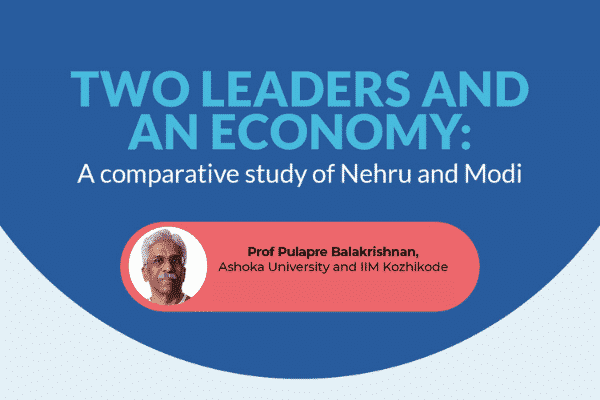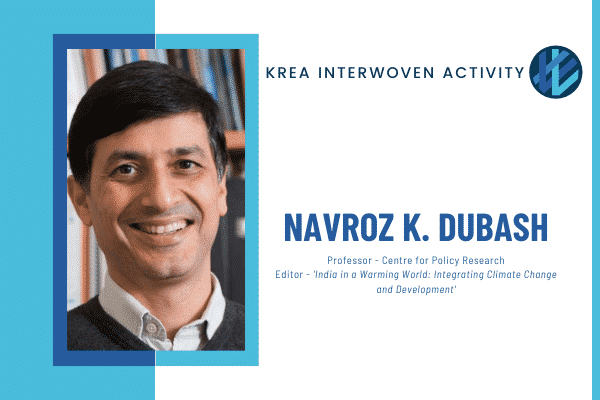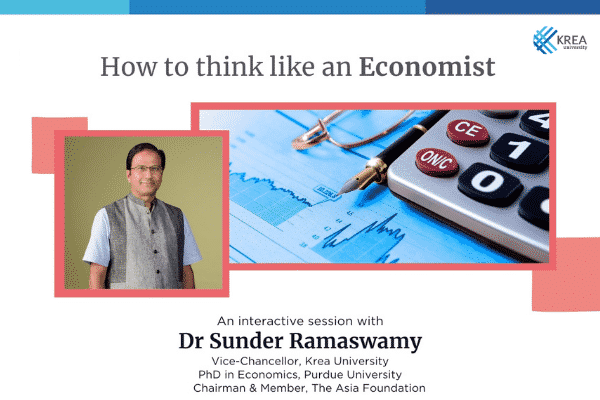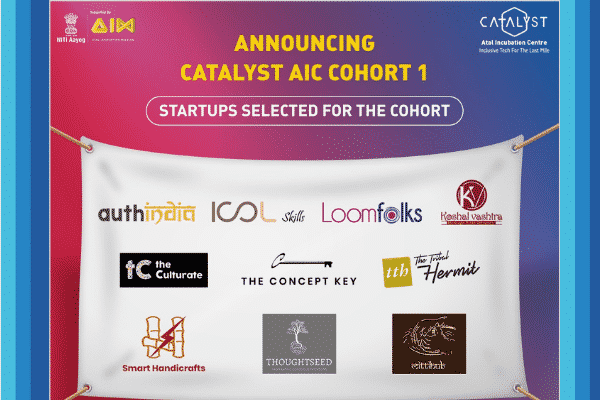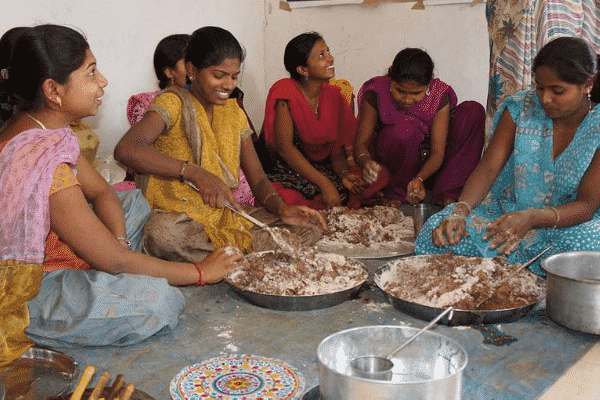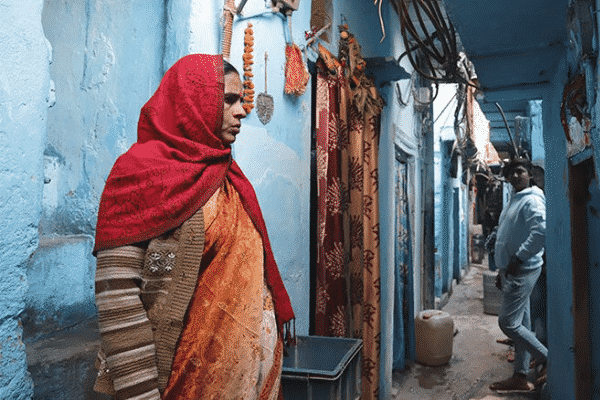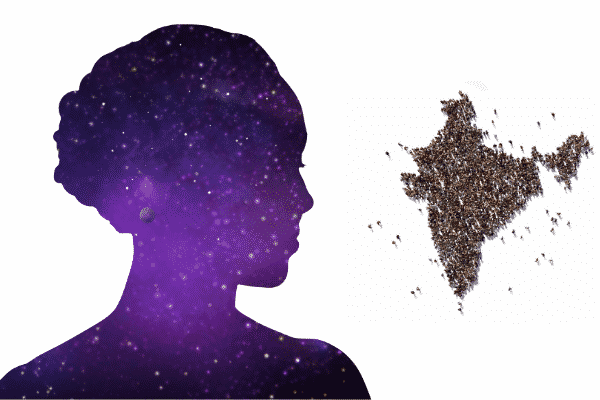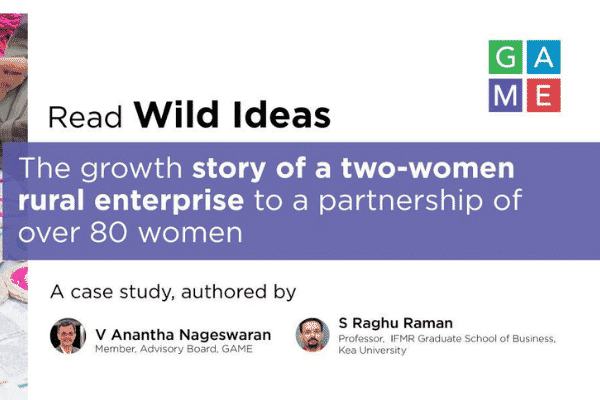Dr Pulapre Balakrishnan — Professor of Economics at IIM Kozhikode and Ashoka University, as well as a distinguished economist well known for his scholarly work on the Indian economy and active participation in public discourse through popular writings — interacted with the students of Krea University, sharing his knowledge on the economy that was and the economy that continues to be. Through an evidence-based approach, Dr Balakrishnan provided an account of the impact Jawaharlal Nehru and Narendra Modi have had on the economy. Packed with insights, the session focused on highlighting the economic consequences of the governance of these two significant Indian leaders.
Author: Sanjana
‘India in a Warming World’ with Navroz K. Dubash
In a highly engaging session with the students of Krea University, Navroz K. Dubash – Professor at the Centre for Policy Research and Editor of ‘India in a Warming World: Integrating Climate Change & Development’ – shared in great detail about climate change and the role India plays in the current global ecological scenario. In the Indian imagination, climate change has long been constructed primarily as a problem of north-south equity. The insightful session examined how climate change now is more than a diplomatic challenge – it is also a development challenge and potentially even an opening for envisioning alternative futures.
How to think like an Economist: Krea Engage with Dr Sunder Ramaswamy
| An international development economist, a renowned academic, a seasoned educator, and higher education administrator — Dr Sunder Ramaswamy (Vice-Chancellor of Krea University) interacted with students, counsellors and parents of students, sharing his expert insights on what it takes to think and become an Economist in today’s world. Dr Sunder shared in detail about all the career possibilities that come with pursuing the subject, drawing from his rich career experience, whilst elaborating on the right tools that help make one an exceptional Economist. |
Catalyst AIC chooses 10 startups to offer incubation support
| The Catalyst Atal Incubation Centre has selected its first cohort of 10 startups, from 110 applications. The 10 shortlisted startups are at the forefront of delivering disruptive and innovative solutions for artisan communities and clusters in India. Over the next six months, the startups will receive focused support from the incubator grounded in a curriculum-based approach. Learn more about the program here. |
LEAD at Krea partners with 3ie for Swashakt evidence programme
| Low female labour force participation rate remains a pressing concern in India, with less than 30 percent of women in rural areas engaged in productive work, paid or unpaid. Under the Swashakt evidence programme, the International Initiative for Impact Evaluation (3ie) is funding the implementation of a series of projects that support collectives and group-based models for women-led businesses, including non-farm and service enterprises that are operating in partnership with state rural livelihood missions. LEAD at Krea University has been chosen as the grants management partner for the evidence programme. As part of this initiative, LEAD will work closely with the 3ie team for the review and management of implementation grants funded under the programme. Click here for more details. |
IWWAGE report captures pandemic’s impact on women and girls
A recent report by Initiative for What Works to Advance Women and Girls in the Economy (IWWAGE) has revealed that while the COVID-19 pandemic and the subsequent lockdowns affected people from all walks of life, the impact was relatively harsher for women and girls in India. The report, “Women in Work: How India Fared in 2020”, jointly commissioned by The Quantum Hub, highlights the labour participation rate, both at the urban and rural level. Read the full report here and its detailed coverage by Mint Lounge here.
Women@Work series: How the pandemic affected women workers in the Indian capital
India’s labour force participation rate was 50.2% according to PLFS, 2018-19. The pandemic seems to have further pushed people out of work. In the latest edition of IWWAGE’s ‘Women@Work’ series, IndiaSpend examines the situation for women workers in Delhi – envisioned as a world-class city – where employment rates (and attitudes) have been nearly static since 1981. While women’s work participation has been long invisibilised, the pandemic hit Delhi’s informal workers hard and many women lost jobs. Read the full report here.
IWWAGE-IndiaSpend report: Gig jobs give women higher incomes but little security
The pandemic affected a number of sectors, including the gig sector. Half of the gig workers lost their jobs and the other half had lost up to two-thirds of their income. From more than half of the gig workers earning more than Rs 25,000 per month in March, nearly 87% were earning less than Rs 15,000 in August 2020. Women workers reported being unable to work either because platforms had suspended their services or because they had to remain at home to take care of their families. IndiaSpend shares insights from gig workers and the challenges faced by them post lockdown. Read the report here.
Stories of resilience and leadership in the early months of the pandemic
According to data by the Centre for Monitoring Indian Economy (CMIE), at least four in 10 women in India lost their jobs during the early months of the pandemic. This translates to an estimated 17 million women who were rendered jobless in March and April 2020 itself, in both the formal and informal sectors. In this article, Soumya Kapoor Mehta (Head – IWWAGE) narrates stories of resilience and leadership displayed by a number of women and what one can infer from the data regarding women employment today. Read the article here.
GAME publishes insightful case study by IFMR GSB professors
Global Alliance for Mass Entrepreneurship (GAME) publishes a detailed case study on a rural social enterprise ‘Wild Ideas’, authored by IFMR Graduate School of Business (GSB), Krea University professors – Dr V Anantha Nageswaran (Distinguished Visiting Professor) and Dr S Raghu Raman (Professor of Organisational Behaviour). The case study captures this for-profit rural enterprise’s journey thus far, including its future directions.
Read the case study here.
